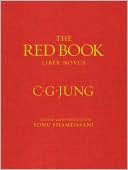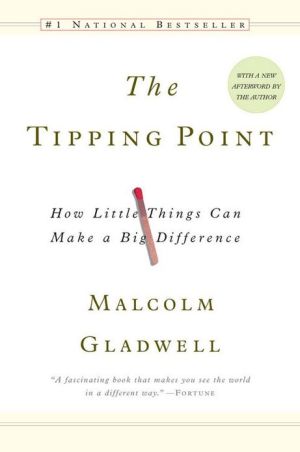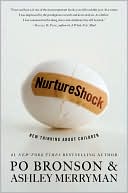The Biological Basis of Human Behavior: A Critical Review
This collection of 59 recent studies on the biological basis of human behavior explores the questions of whether the behavioral patterns we see are genetically fixed or racially variable. It offers a broad perspective from many disciplines -- plus a critical evaluation of whether experts are now better able to answer these questions or whether this renewed interest is just a resurgence of the old racism and biological determinism of the past. The articles stimulate readers to think about the...
Search in google:
This collection of 59 recent studies on the biological basis of human behavior explores the questions of whether the behavioral patterns we see are genetically fixed or racially variable. It offers a broad perspective from many disciplines -- plus a critical evaluation of whether experts are now better able to answer these questions or whether this renewed interest is just a resurgence of the old racism and biological determinism of the past. The articles stimulate readers to think about the questions and read -- with a critical eye -- those writers who believe they have found a simple and simplistic answer to these very complex problems. Illustrates the growing awareness of the complex interrelationships between environmental and cultural influences on behavior in humans and other animals. Covers areas such as evolution, humans, and primates; the biological basis of human behavior; the biological basis of race and racism; the new Biological Determinism; the brain, hormones, and human behavior. Includes popular, scientific, good and bad approaches to the same themes. Uses critical examples which carefully evaluate alternate approaches, and evaluates the data available to reach various conclusions -- or lack thereof. For anyone interested in the biological basis of human behavior. Booknews New edition of a reader developed for an undergraduate anthropology course. The 59 contributions look at genetics, the various interpretations of the early evolution of human behavior, new attempts to link human physical variation to behavioral differences between people, modern evolutionary psychology, and the influences of hormones and the brain on behavior. The emphasis is on providing students with the background information necessary for understanding human universals and the biological bases of the modern social sciences. Annotation c. by Book News, Inc., Portland, Or.
(NOTE: New articles are in bold.)I. INTRODUCTORY MATERIAL: EVOLUTION, HUMANS, AND PRIMATES. 1. Basic Concepts of Evolutionary Biology, from Evolution and the Diversity of Life. Ernst Mayr. 2. The Evolution of Living Systems, from Evolution and the Diversity of Life. Ernst Mayr. 3. Mitosis, Meiosis, and the Origins of Genetic Variability, from Human Evolution: An Introduction to the New Physical Anthropology. Joseph B. Birdsell. 4. Understanding the Genetic Construction of Behavior, from Scientific American. Ralph J. Greenspan. 5. The Taxonomy and Evolution of Primates, Robert W. Sussman. 6. Socioecology. Robert W. Sussman. 7. The Major Features of Human Evolution, Ian Tattersall. 8. Evolution of Humans May at Last Be Faltering,from The New York Times. William K. Stevens. 9. Selection in Modern Populations, from Human Evolution: An Introduction to the New Physical Anthropology. Joseph B. Birdsell.10. Ghetto Legacy, from Current Biology. Sephen J. O'Brien.II. THE EVOLUTION OF HUMAN BEHAVIOR.11. The Evolution of Hunting,from Man the Hunter. S. L. Washburn and C. S. Lancaster.12. Men Love the Muck, Gingrich.13. Sociobiology: A New Approach to Understanding the Basis of Human Nature,from New Scientist. Edward O. Wilson.14. The New Synthesis is an Old Story, Science as Ideology Group of the British Society for Responsibility. from New Scientist. 15. Sociobiology: The Art of Storytelling,from New Scientist.Stephen Jay Gould.16. Why Did Lucy Walk Erect?,from Lucy: The Beginnings of Human Kind. Donald C. Johanson and Maitland A. Edey.17. Flesh and Bone,from Discover. Ellen Ruppel Shell.18. Ape Cultures and Missing Links,from Symbols. Richard W. Wrangham.19. Bonobo Sex and Society,from Scientific American. Frans B. M. de Waal.20. The Myth of Man the Hunter/Man the Killer, Robert W. Sussman.21. Reconstructions of Early Hominid Socioecology: A Critique of Primate Models, from The Evolution of Human Behavior: Primate Models. Richard Potts.22. Species-Specific Dietary Patterns in Primates and Human Dietary Adaptations, from The Evolution of Human Behavior: Primate Models. Robert W. Sussman.23. Ancient Odysseys, Michael D. Lemonick.24. Time, Temporal Envelopes and the Middle and Upper Paleolithic Transition,from Archaeological Review from Cambridge. B. A. Schuman and P.B. Petit.25. Deception Among Primates, Robert W. Sussman and Thad Q. Bartlett.III. THE BIOLOGICAL BASIS OF RACE AND RACISM.26. Human Races: A Genetic and Evolutionary Perspective, Alan R. Templeton.27. Three is Not Enough,from Newsweek. Sharon Begley.28. Why Psychologists Should Learn Some Anthropology,from American Psychologist. Jefferson M. Fish.29. Toward a Theory of Human Multiple Birthing: Sociobiology and r/K Reproductive Strategies,from Acta Geneticae Medicae et Gemelloligiae. J. Phillipe Rushton.30. Differential K Theory and Racial Hierarchies,from Canadian Psychology. Frederic Weizmann, Neil Weiner, David L. Wiesenthal, and Michael Ziegler.31. Race, Genes and I.Q. — An Apologia,from The New Republic. Charles Murray and Richard J. Hermstein.32. The Poor Person's Guide to The Bell Curve,from Scientific American. Jeremy Bernstein.33. Critique of The Bell Curve,from Mismeasure of Man. Stephen J. Gould.34. What Color Is Black,fromNewsweek Tom Morganthou.35. A Summary of the World, Anonymous.36. New Vital Statistics Confirm Worsening of Black Health, International Society on Hypertension in Blacks, fromEthnicity and Disease. 37. Black, White, Other,from Natural History. Jonathan Marks.38. Brave New Right,from The New Republic. Michael Lind.39. The Nature of Human Universals, Robert W. Sussman.IV. THE NEW BIOLOGICAL DETERMINISM.40. Male and Female,from The Moral Animal: Evolutionary Psychology and Everyday Life. Robert Wright.41. Our Cheating Hearts,from Time. Robert Wright.42. The Curious Courtship of Sociobiology and Feminism: A Case of Irreconcilable Differences,from Feminism and Evolutionary Biology: Boundaries, Intersections, and Frontiers. Zuleyma Tang-Martinez.43. The Biology of Violence,from The New Yorker. Robert Wright.44. Modern Biological Determinism: The Violence Initiative, the Human Genome Project and the New Eugenics,from Sociology of the Sciences Yearbook. Garland E. Allen.45. Scapegoat Biology, from Discover. Bettyann H. Kevles and Daniel J. Kevles.46. Genetic Ties May Be Factor in Violence in Stepfamilies, from The New York Times. Jane E. Brody.47. Infant Killing as Evolutionary Strategy: Reality or Myth?,from Evolutionary Anthropology. Robert W. Sussman, James M. Cheverud, and Thad Q. Bartlett.48. Infanticide: Let's Not Throw the Baby Out with the Bath Water,from Evolutionary Anthropology. Sarah Blaffer Hrdy, Charles Janson, and Carel van Schaik.49. How the Human Got it's Spots,from Skeptic. Henry D. Schlinger, Jr.V. THE BRAIN, HORMONES, AND HUMAN BEHAVIOR.50. Gray Matters,from Newsweek. Sharon Begley.51. The Trouble with Testosterone, from The Trouble with Testosterone and Other Essays on the Biology of the Human Predicament. Robert M. Sapolsky.52. Social Status Sculpts Activity of Crayfish Neurons,from Science. Marcia Barinaga.53. Life at the Top: Animals Pay the High Price for Dominance,from Science. Virginia Morrell.54. How the Brain Uses a Simple Dopamine System,from The New York Times. Sandra Blakeslee.55. Illuminating How Bodies Are Built for Sociability, from The New York Times. Natalie Angier.56. Hormones, Genes, and Behavior, from Proceeds of the National Academy of Science. Donald W. Pfaff.57. Think Again, from Human Nature. John Tooby and Leda Cosmides.58. Our Genes, Ourselves?, from BioScience. Ari Berkowitz.59. A Gene for Nothing, from Discover. Robert M. Sapolsky.
\ BooknewsNew edition of a reader developed for an undergraduate anthropology course. The 59 contributions look at genetics, the various interpretations of the early evolution of human behavior, new attempts to link human physical variation to behavioral differences between people, modern evolutionary psychology, and the influences of hormones and the brain on behavior. The emphasis is on providing students with the background information necessary for understanding human universals and the biological bases of the modern social sciences. Annotation c. by Book News, Inc., Portland, Or.\ \








